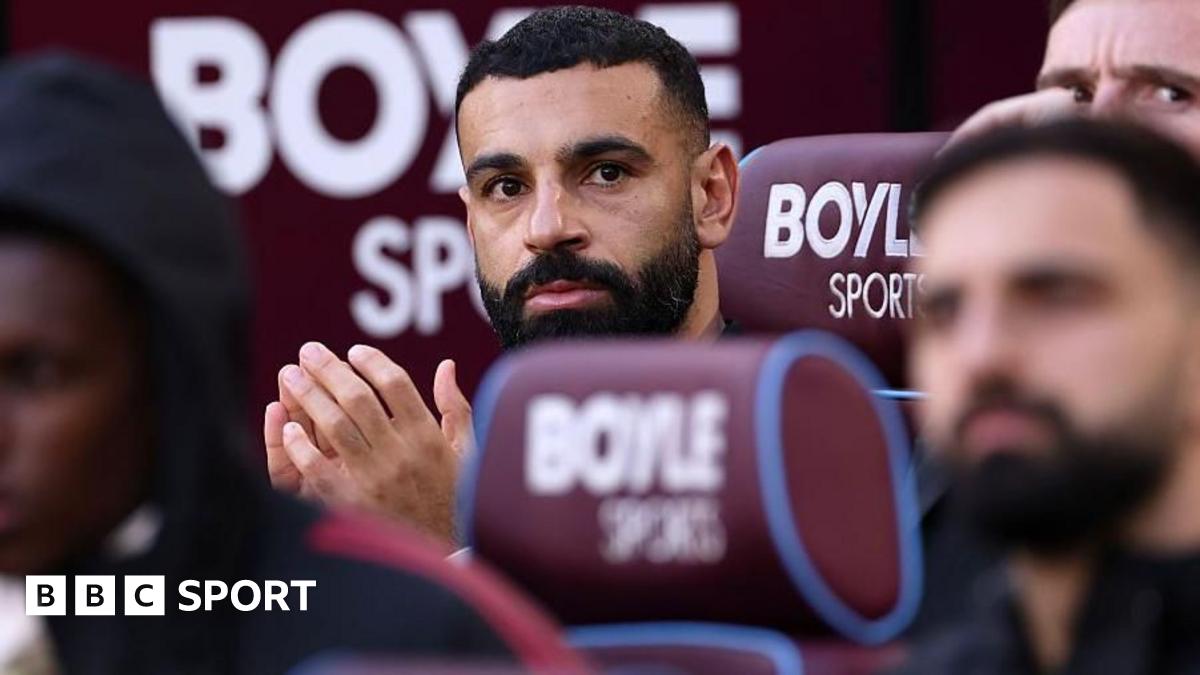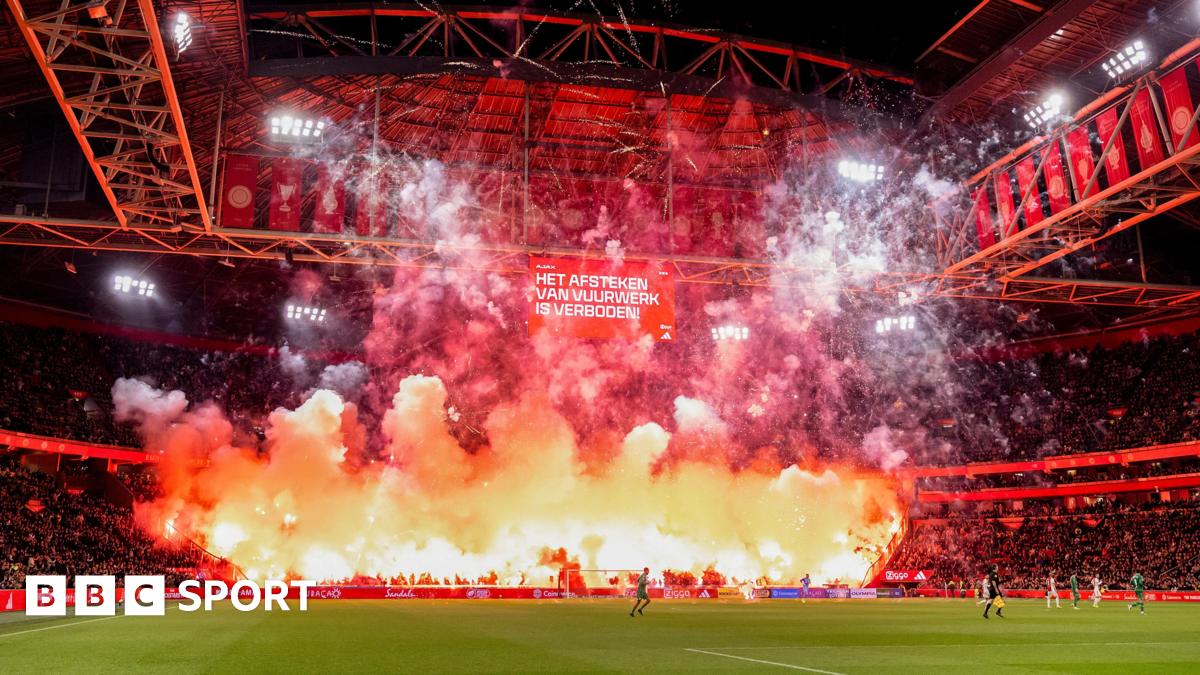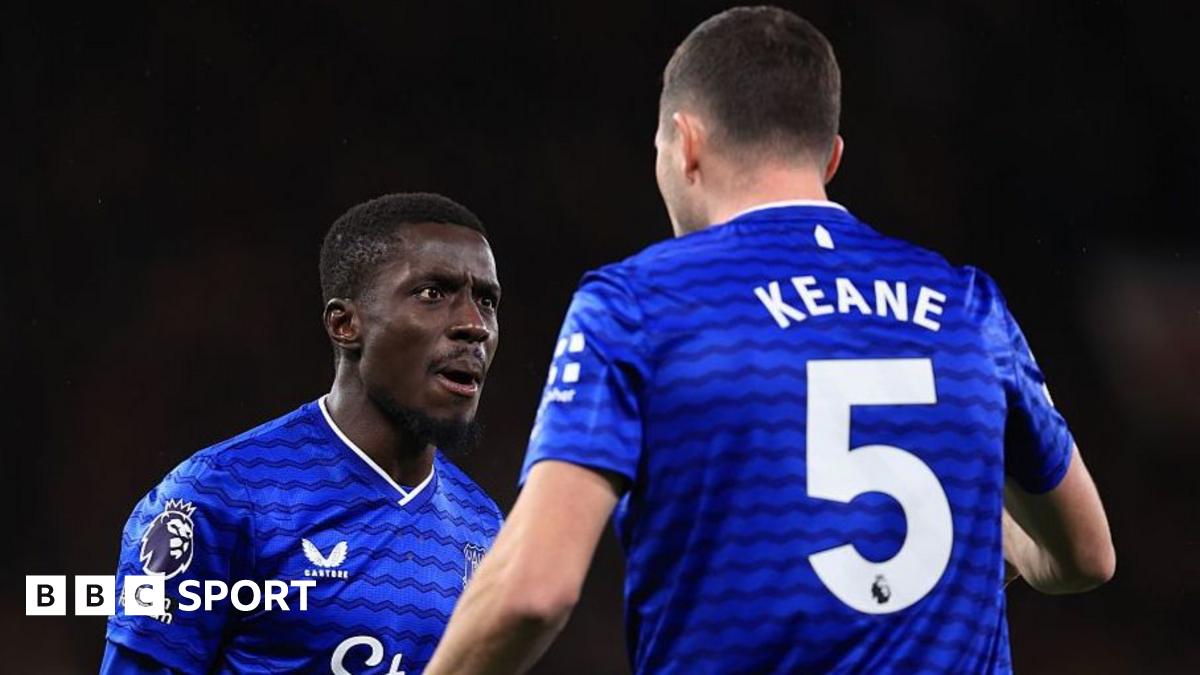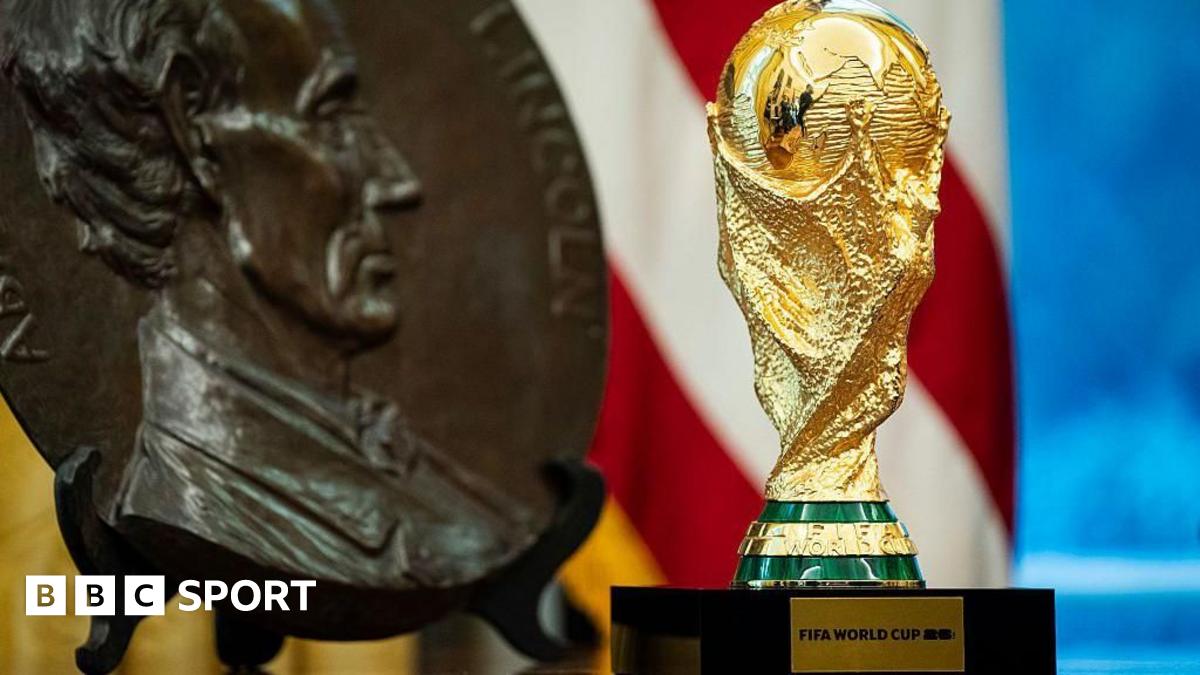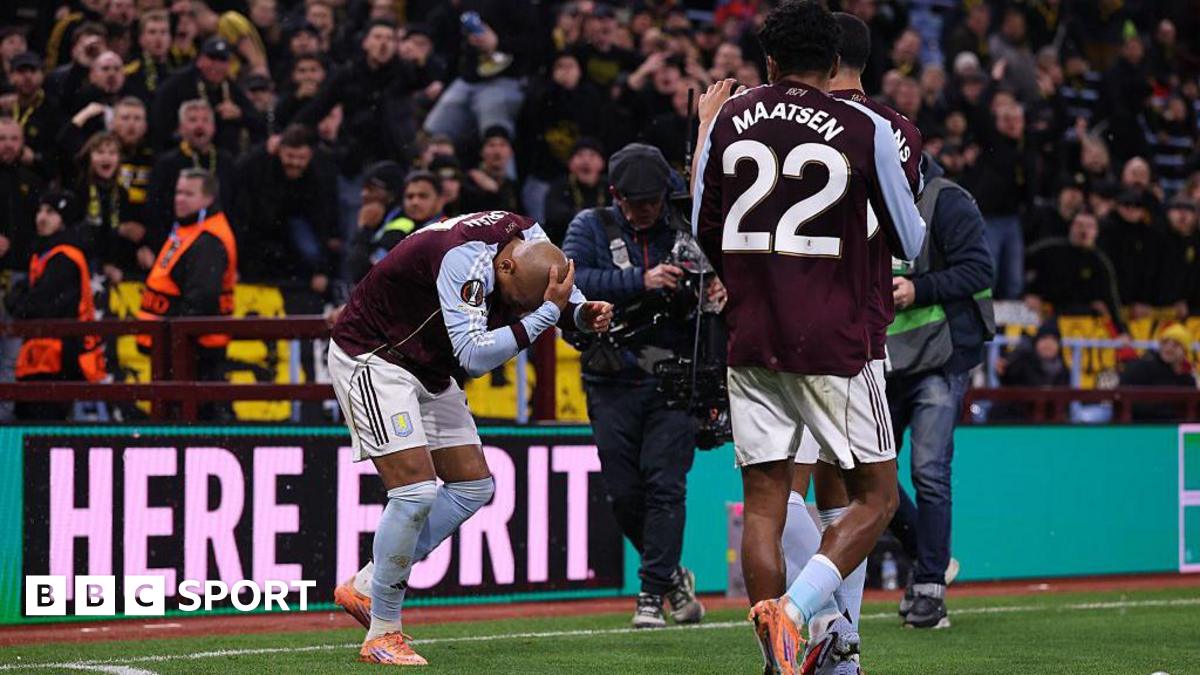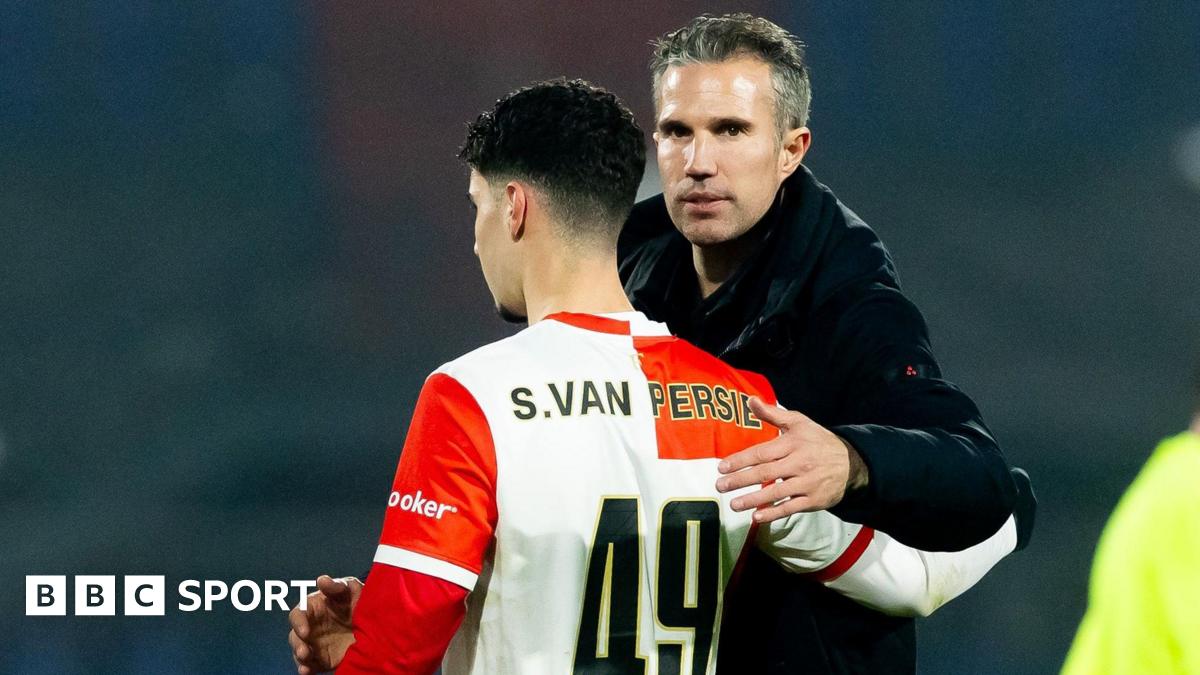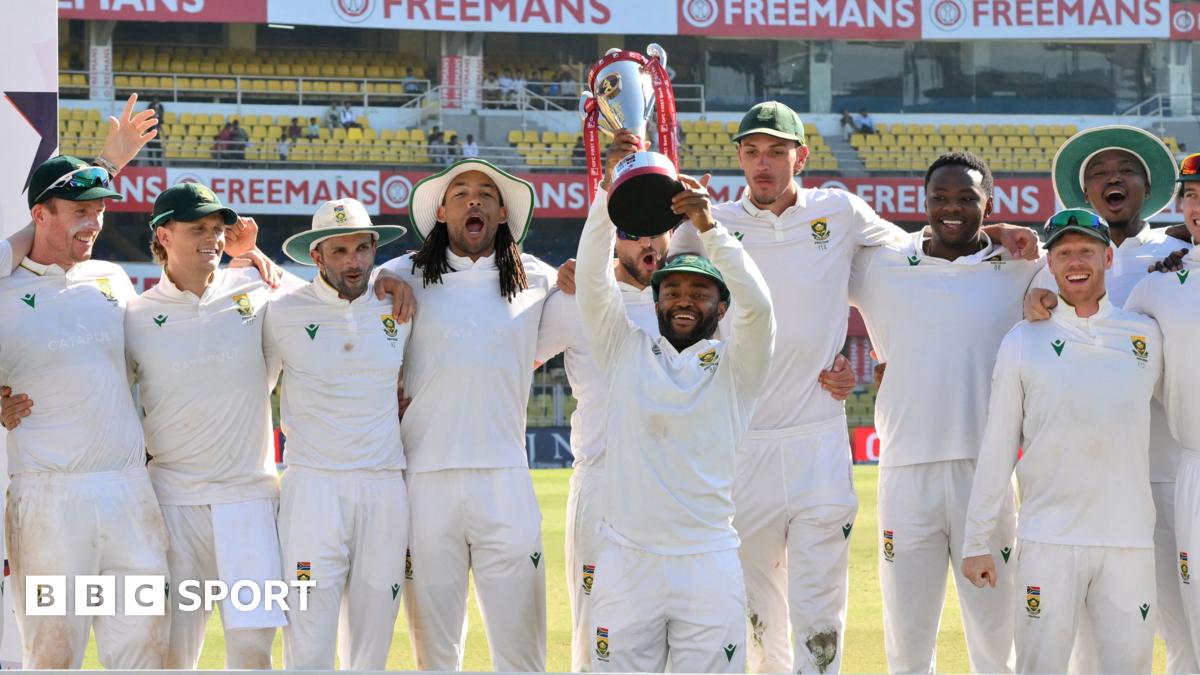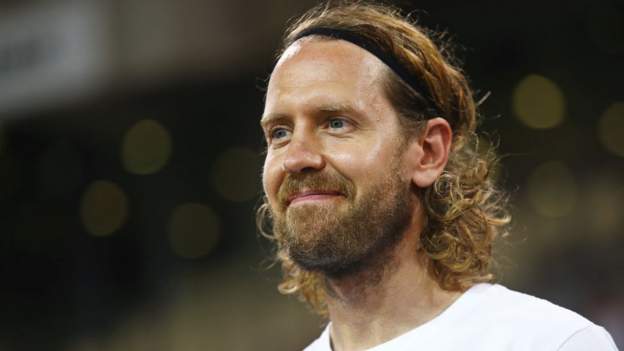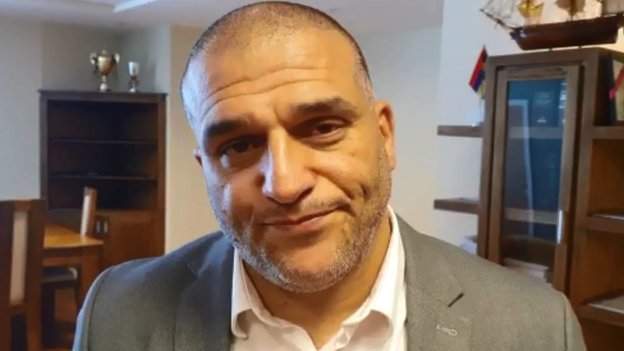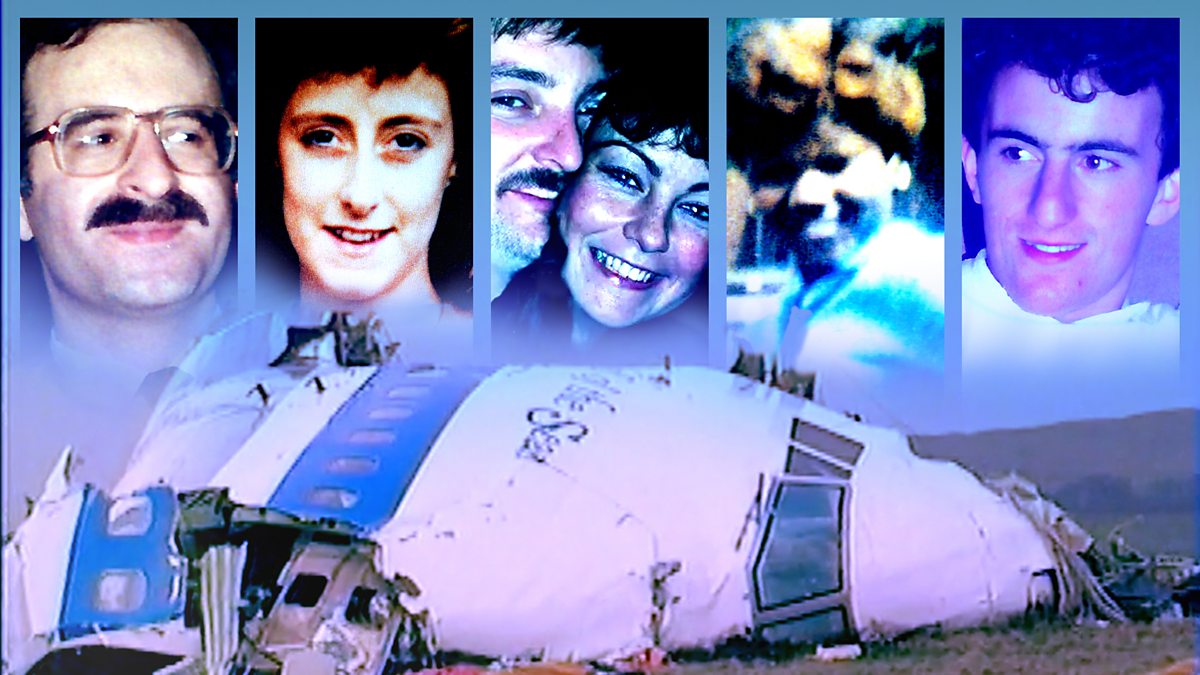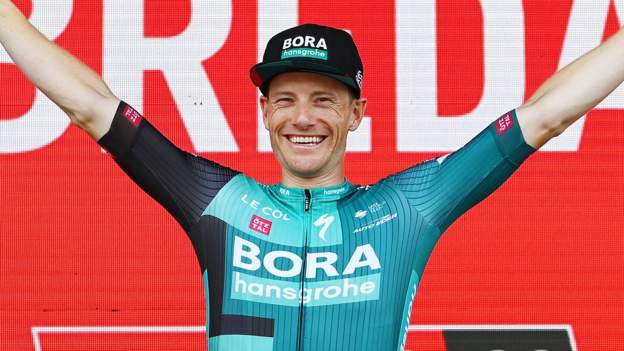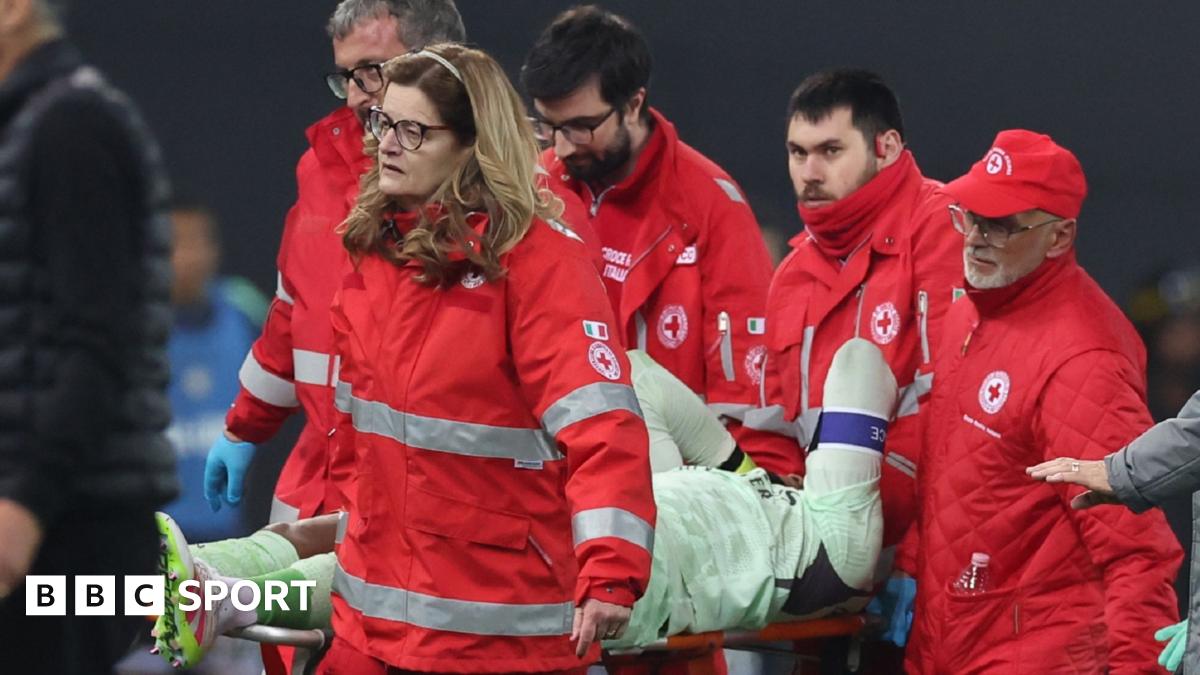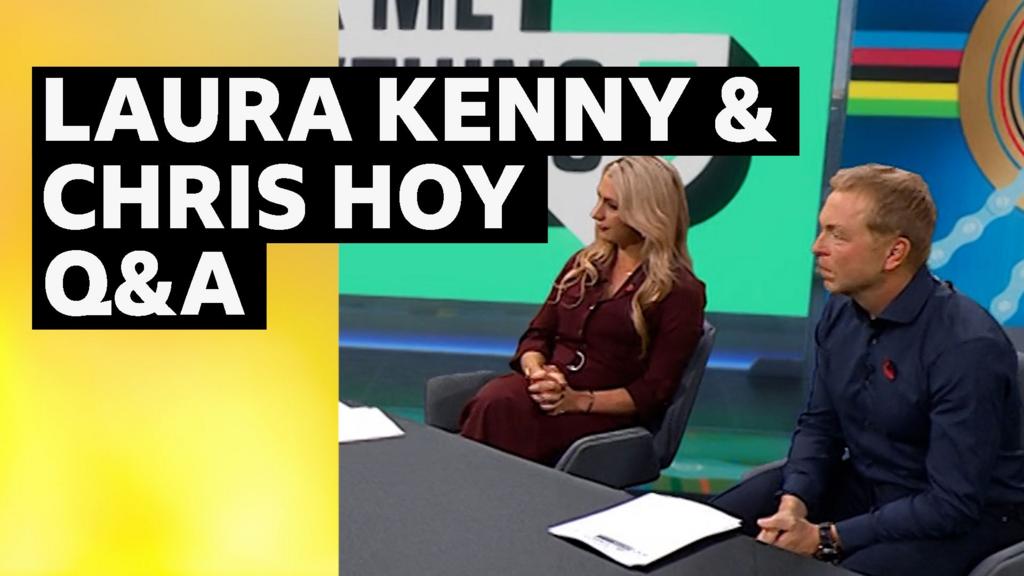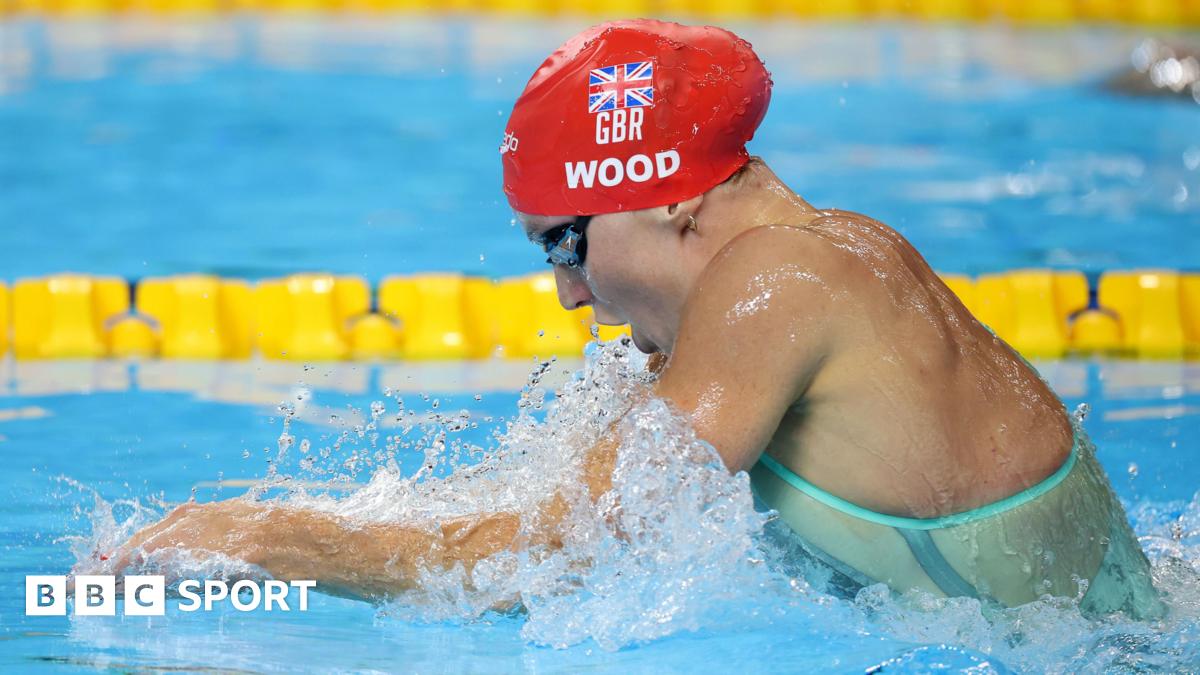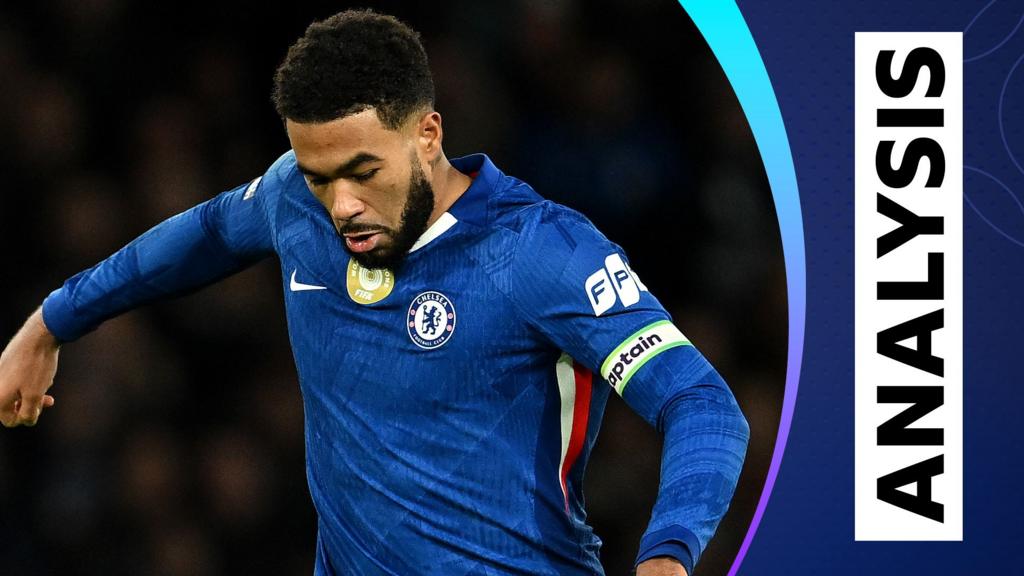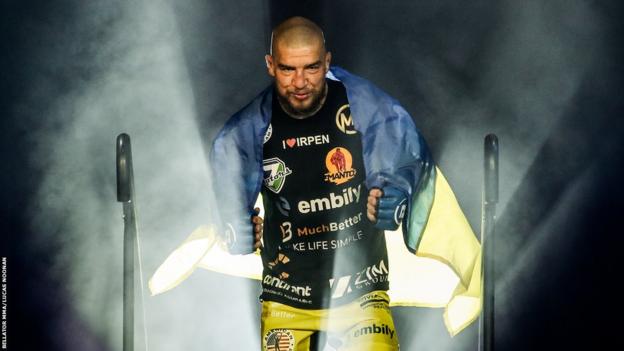
Warning: this story contains descriptions of conflict some readers may find upsetting.
Using the torch on his mobile phone to guide him, Yaroslav Amosov climbs out of the darkness, up some dusty, broken stairs into the light.
Below is a basement, above are the remnants of a bombed-out home. Carefully cradled in Amosov’s arms is a package.
The Ukrainian peels back a plastic bag, unwraps a towel and, with a smile, wipes some dust from the Bellator welterweight title belt.
Much of the house has been destroyed by Russian shelling following the country’s invasion of Ukraine in February 2022, but champion Amosov’s belt remarkably remains intact.
It is a moment of happiness and hope among the crumbled surroundings of a battle-scarred town.
“Before my mum left for safety she hid the belt in her house, which obviously got bombed and ruined along with everything else,” Amosov, 29, told BBC Sport.
“When we liberated my city I was part of it, and in the next day or so I said ‘hey, you know what, I’m going to go back to the ruins of my old house and see if I can find the belt’.
“I was really excited. It was very symbolic at the time of a different life I guess, and I was happy to find it. Now it’s kind of become part of my history.”
On Saturday against Logan Storley at Bellator 291 in Dublin, Amosov successfully defended his title for the first time since helping his country fight against Russia’s invasion.
With the war ongoing, leaving Ukraine was a difficult decision for Amosov, but the reasoning behind his return to the cage transcends competition.
“With enough pressure from my family and friends, I started to see what they were saying. Basically, return to MMA, go back to fighting and spread the word. Tell people what’s been going on [in Ukraine]. This is the reason I came back.”
This is his story of war.

Amosov was born in Irpin, a city on the outskirts of the Ukrainian capital, Kyiv.
He describes Irpin as a once-beautiful city, full of happiness and life.
This is where Amosov and his family were last February when Russia’s president Vladimir Putin ordered his troops to launch a full-scale assault on Ukraine.
Irpin has suffered heavy damage in the attack, with hundreds of residents killed and thousands more uprooted from their homes.
“At first you’re kind of in a state of shock. You don’t know what’s going on,” said Amosov.
“The most important thing for us was to get our families to safety. Me and my friends, my parents, our wives, our elderly, our kids, dogs – anybody.
“The flow of people, traffic jams, it was horrible as you can imagine. Everyone is trying to get to safety. We finished packing up, got everybody in the cars and then we hit the road. I drove for 36 hours straight to get them to safety.”
With his family safely away from the frontline, Amosov regained some clarity and made a potentially life-changing decision – he would drive back to Irpin to defend his city.
He did not know if he would see his family again.
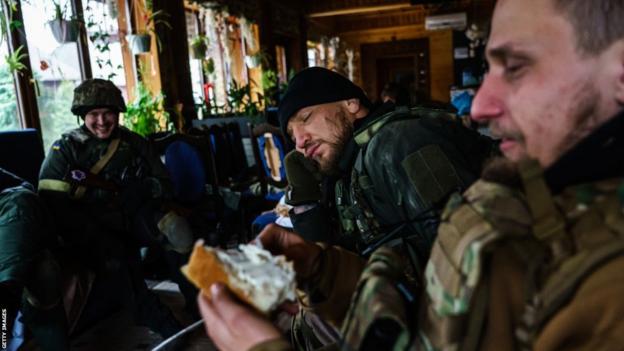
Russia’s invasion began on the morning of 24 February 2022. By evening, Ukraine president Volodymyr Zelensky had ordered the general mobilisation of all men between 18 and 60 years old, prohibiting them from leaving the country.
Amosov, like many of his countrymen, was thrust into action with no military experience.
“[My training] was in the trenches. That’s where we got our training – in military action. The war was training,” said Amosov.
His time at the beginning was mostly occupied by helping the thousands of civilians who had been displaced from their homes by Russian bombing.
“I think sometimes people have a very movie-like association of what soldiers do and they just run around shooting all day,” he said.
“That’s not what we were doing. A lot of our work had to do with rescuing and helping people in whatever they needed help with, whether it’s recovering them from rubble or moving stuff or whatever it was. You try to do whatever it is you need to do to make sure people get better.
“It was over a month and a half until we finally got a full military uniform and then started to participate in some of this action.”
Amosov had never fired a gun in his life when he was given one by the Ukrainian military.
He says he always turned down friends’ invites to shooting ranges or on hunting trips.
“I was actually always kind of shying away from handling weapons. In the beginning I didn’t even know if I was firing the thing the right way,” he said.
“I had to ask people next to me and my friends if I was using the weapon the right way.”
By the end of March, Amosov had helped Ukrainian troops recapture Irpin from Russian occupation.
But it came at an immeasurable emotional cost.
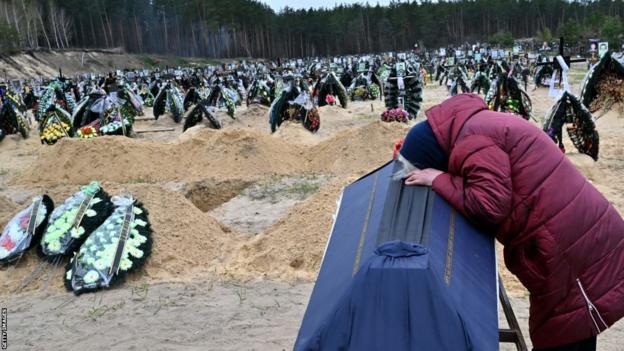
As of 13 February, the Office of the United Nations High Commissioner for Human Rights says 7,199 civilians have died in Ukraine as a result of Russia’s invasion, with a further 11,756 injured.
Russia has been accused of tens of thousands of war crimes, including mass murder of civilians, torture and rape. Russia has denied its troops are guilty of such actions, claiming evidence has been faked and accounts fabricated.
Amosov described what he saw on the ground in Irpin.
“When we liberated my hometown, there’s a town next to it, and we kind of went there to let the people know the Russian army has been pushed away and they are now safe. And we saw a street called the Street of Death,” he said.
“To the left and to the right all you saw was bodies. Regular people, grandmas, kids, wives, husbands, and they were there for weeks. The Russian soldiers would not let their loved ones collect the remains and bury them. They just laid there rotting.
“We got in and we were telling them we were Ukrainian troops, that they were now liberated. They’re crying and we’re giving them bread and water. They’re excited just to have some kind of a meal.”
Amosov continued: “It makes you wonder, what kind of person would do this? What kind of soldier would follow these kind of orders? What kind of person would give these kind of orders to slaughter innocent civilians that have nothing to do with anything, in their own country?
“A lot of times we would go there and bury families and you don’t even know who they are. You would just put a name and date they passed away on a sign, hoping later somebody could identify it and figure it out. It’s just a mess, an absolute mess.”
Amosov is still coming to terms with these experiences.
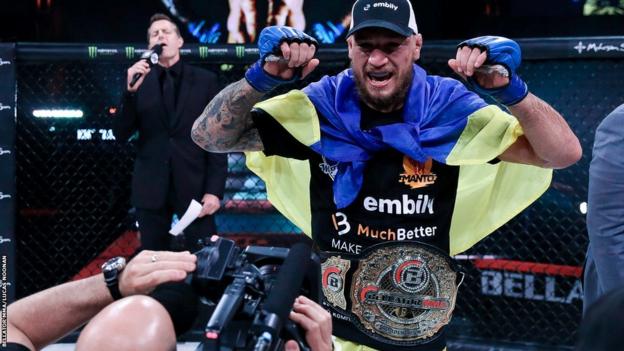
After Ukrainian soldiers regained control of Irpin, Amosov took part in sporadic MMA training sessions.
Over the next few months Amosov trained as a hobby with no intention of returning to professional competition, until his family and friends convinced him otherwise.
As his training intensified he moved to a bigger MMA gym in Germany, and before long his return to competition was confirmed. In November, it was announced he would face interim welterweight champion Storley.
But it is hard to focus on the forthcoming fight and forget the bigger one back home.
“Some of my friends who came to visit me all had the same sensation – it was aeroplanes. When an aeroplane would fly over we get this sick feeling because in the Ukraine it’s bad news. Something is coming. There’s going to be a bombing. So hearing aeroplanes is difficult,” said Amosov.
“And then not seeing the military in the streets and not walking around with guns and in ruins. And then the curfew – we had a curfew in Ukraine – so yeah, it took quite a bit of adjustment.”
Amosov continued: “I think the biggest part it affects is you start to re-evaluate what’s important in life and what are the things that matter and the things that don’t.
“To be honest with you, I really don’t know truly how this affected me. It’s still affecting me, it hasn’t settled in.”
Amosov says his friends and family have helped with his adjustment to life outside war, but he has received no professional care.
Amosov’s first experience of MMA was at the age of 16 when he joined a combat sambo gym – a form of martial arts popular in Eastern Europe.
After transitioning to MMA, he won 19 fights before signing with American promotion Bellator in 2018 where he became welterweight champion and extended his unbeaten record to 27.
Amosov’s run is currently the longest unbeaten streak in a major MMA promotion.
His convincing win over Storley, 30, was his second over the American following a split decision victory in 2020.
Amosov says the experience defending his country has changed his motivations for fighting. He has lost friends and training partners during the war.
“Any time now when I face difficulty or I feel tired from training, I can’t help but think about my friends and my family that are in Ukraine right now,” he said.
“In the trenches, defending my country and how much harder it is for them. It puts things into perspective and I want to thank them for doing it, but yes, it has changed my motivation.
“I want to win. I want to bring the belt back home to Ukraine. I think it means a lot more now than it ever has. To my country which I love, it means everything.”
Despite victory over Storley and unifying the Bellator welterweight division, the ongoing war remains at the forefront of Amosov’s thoughts.
“War leaves marks and it definitely left a mark on me. And it’s not over, it’s still going on and people are still dying,” he said.
“They are attacking [civilians], flying around and dropping bombs, killing innocent people left and right. What’s the explanation for that?
“[Now] this fight’s over, I’m going to go back to Ukraine.”

